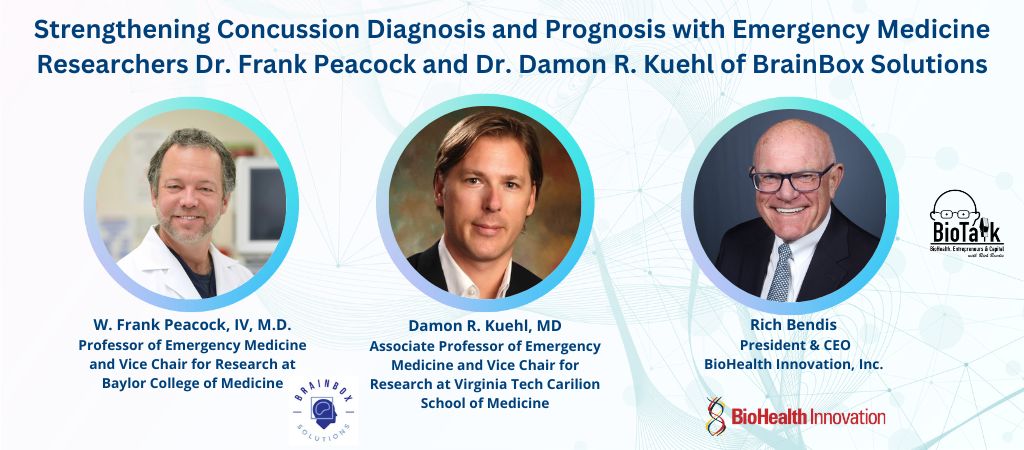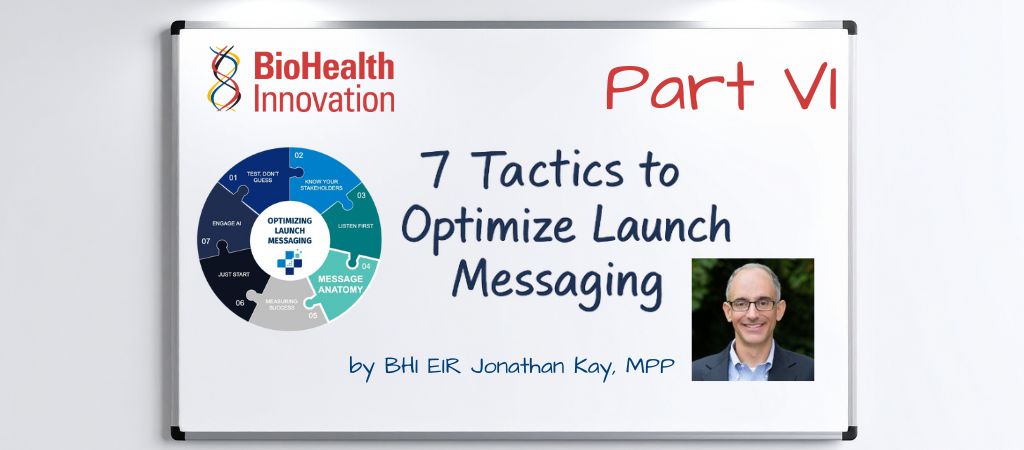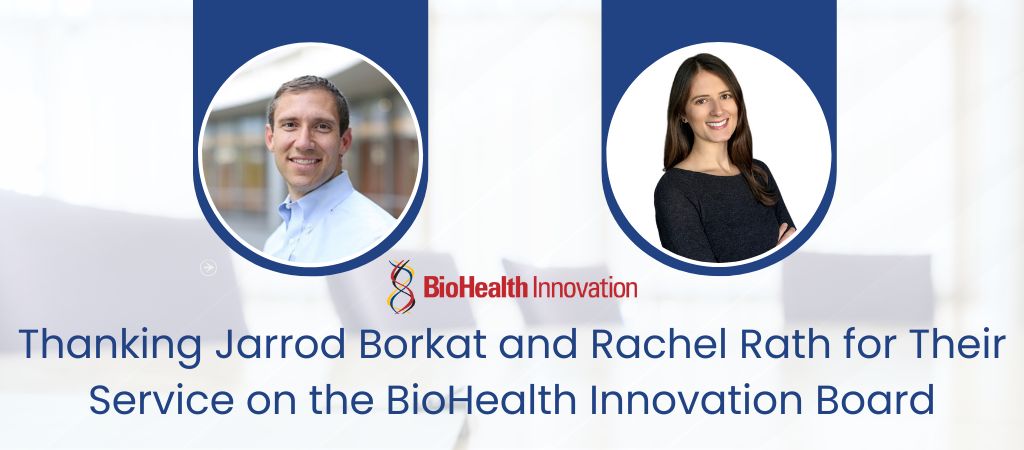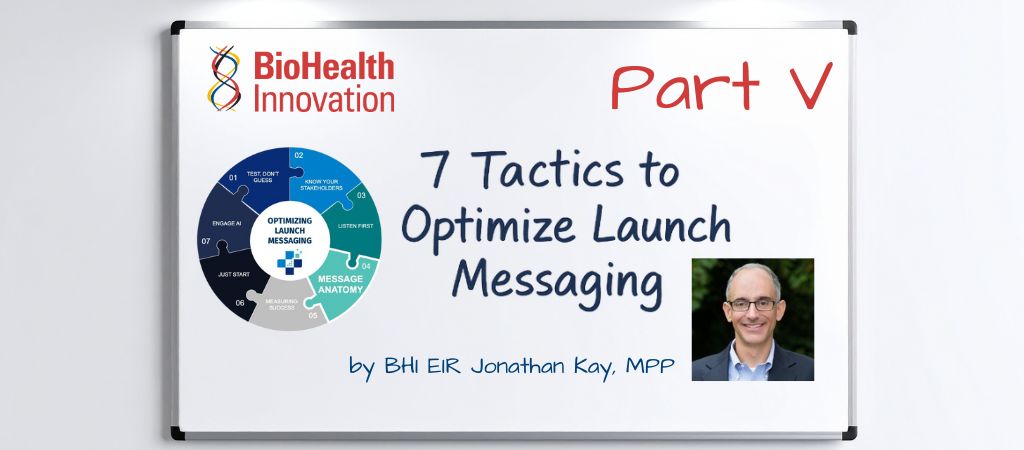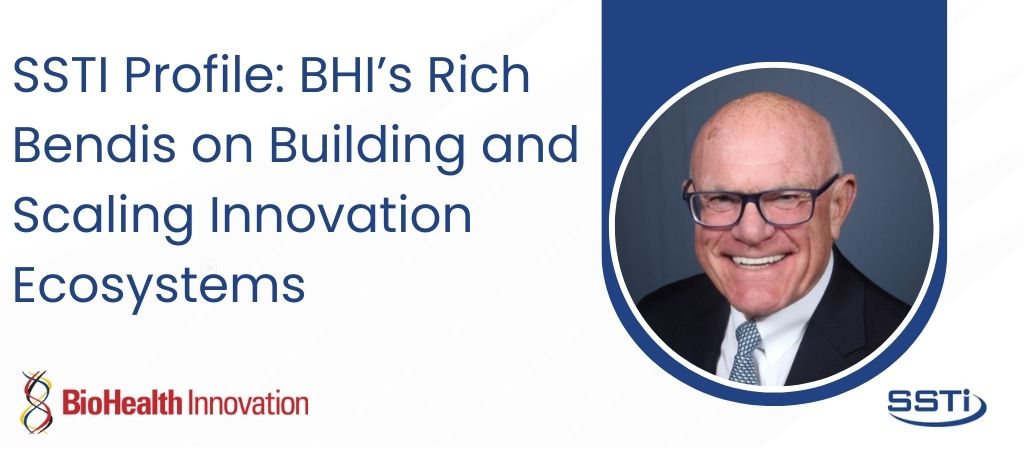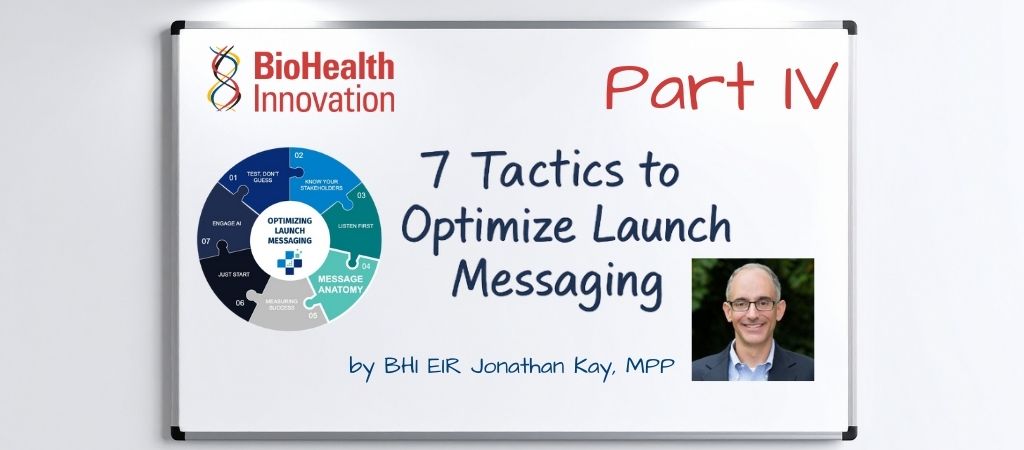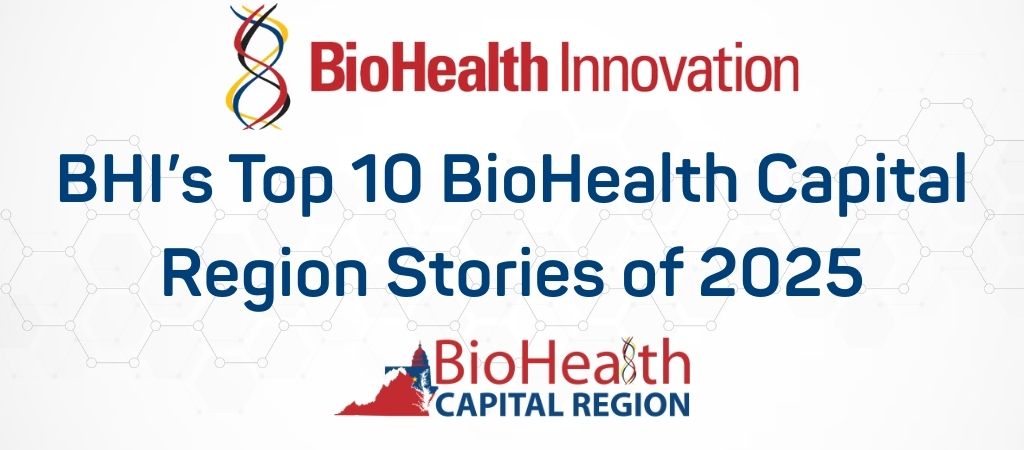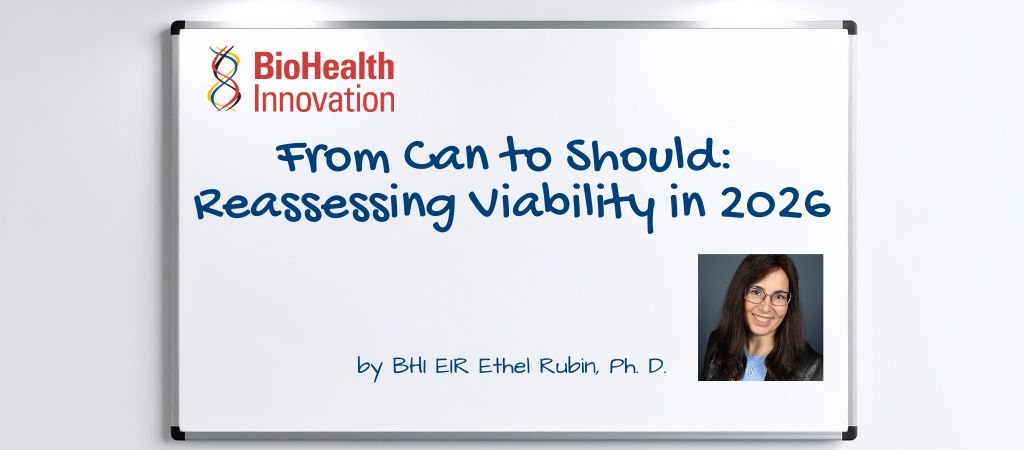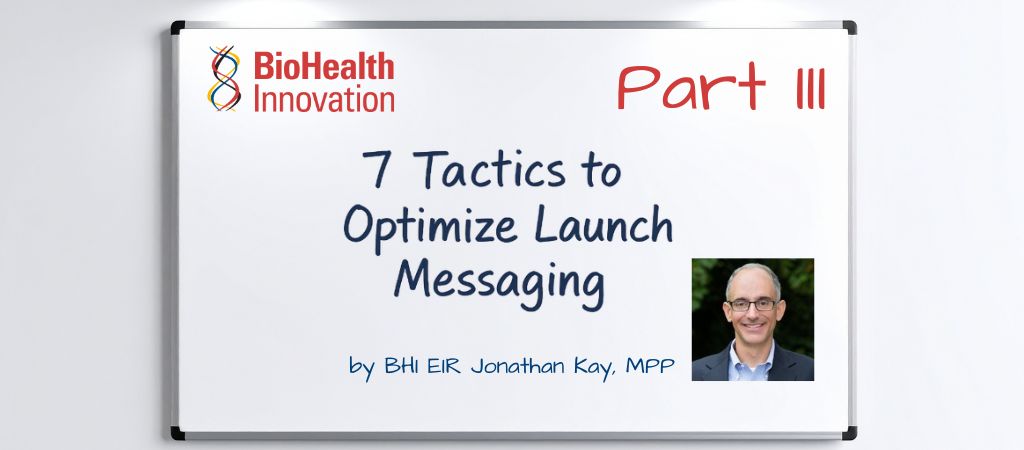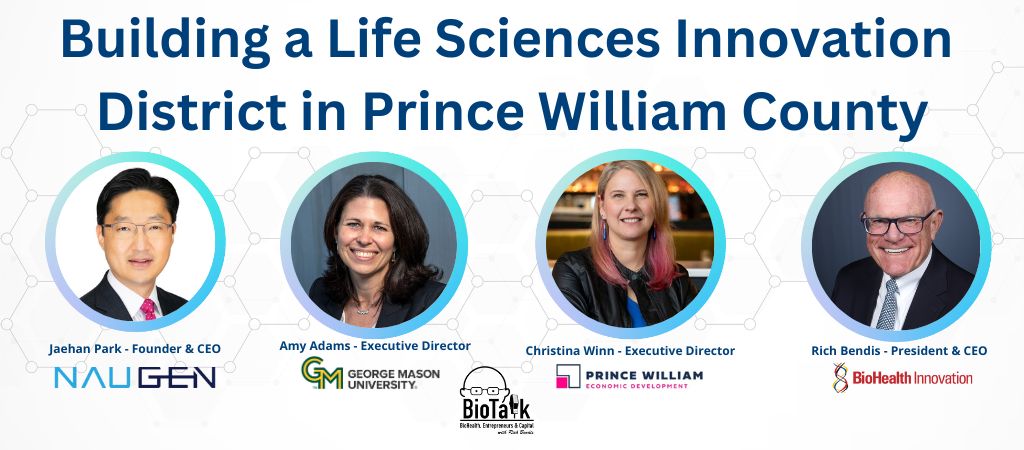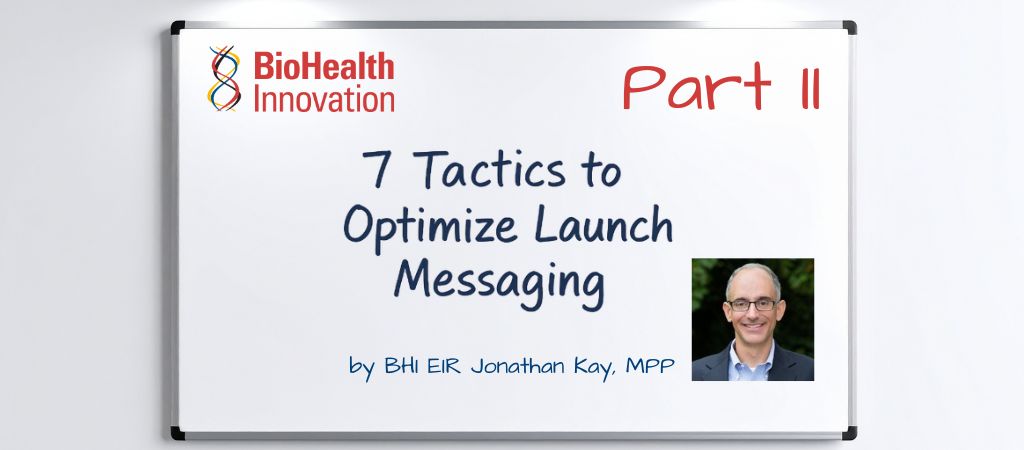BioHealth News
Strengthening Concussion Diagnosis and Prognosis with Emergency Medicine Researchers Dr. Frank Peacock and Dr. Damon R. Kuehl of BrainBox Solutions, Inc. on BioTalk
Dr. Frank Peacock and Dr. Damon R. Kuehl join BioTalk for a focused discussion on one of emergency medicine’s most persistent challenges: accurately diagnosing…
Read MoreNearly 200 Episodes In. The BioTalk With Rich Bendis Podcast Wants Your Guest Suggestions
BioTalk with Rich Bendis wants to hear from its audience about the voices that deserve the mic. A new guest submission form is now…
Read MoreBHI EIR Insights: 7 Tactics to Optimize Launch Messaging – Part VI
by Jonathan Kay, MPP, Managing Partner, Health Market Experts & BioHealth Innovation, Inc. Entrepreneur-in-Residence To recap, the first 5 posts of our series covered:…
Read MoreThanking Jarrod Borkat and Rachel Rath for Their Service on the BioHealth Innovation Board
BioHealth Innovation extends its sincere thanks to Jarrod Borkat, Chief Commercial and Strategy Officer at On Demand Pharmaceuticals, and Rachel Rath, Head of JLABS…
Read MoreBHI EIR Insights: 7 Tactics to Optimize Launch Messaging – Part V
by Jonathan Kay, MPP, Managing Partner, Health Market Experts & BioHealth Innovation, Inc. Entrepreneur-in-Residence Welcome to Tactic 5 in our series of 7 Tactics…
Read MoreSSTI Profile: BHI’s Rich Bendis on Building and Scaling Innovation Ecosystems
The article below was originally developed by the State Science & Technology Institute (SSTI), a national nonprofit organization that works with states, regions, and practitioners…
Read MoreBHI EIR Insights: 7 Tactics to Optimize Launch Messaging – Part IV
by Jonathan Kay, MPP, Managing Partner, Health Market Experts & BioHealth Innovation, Inc. Entrepreneur-in-Residence In our last three posts of this series, we discussed:…
Read MoreBHI’s Top 10 BioHealth Capital Region Stories of 2025
The BioHealth Capital Region closed out 2025 with clear evidence of strength and momentum. While life sciences companies across the country navigated capital constraints,…
Read MoreFrom Can to Should: Reassessing Viability in 2026
Last year, I wrote a LinkedIn Article titled “To be or not to be: Just because you CAN, doesn’t mean you SHOULD.” The point…
Read MoreBHI EIR Insights: 7 Tactics to Optimize Launch Messaging – Part III
by Jonathan Kay, MPP, Managing Partner, Health Market Experts & BioHealth Innovation, Inc. Entrepreneur-in-Residence In our last two posts of this series, we discussed:…
Read MoreBuilding a Life Sciences Innovation District in Prince William County on BioTalk
This episode of the BioTalk with Rich Bendis Podcast brings together leaders from industry, academia, and economic development to unpack the vision behind a…
Read MoreSamsung Biologics Expands U.S. Manufacturing Capabilities with Strategic Acquisition of Human Genome Sciences from GSK
INCHEON, South Korea, ROCKVILLE, Md. and LONDON , Dec. 21, 2025 /PRNewswire/ -- Samsung Biologics (KRX: 207940.KS), a leading contract development and manufacturing organization (CDMO), today announced…
Read MoreBHI EIR Insights: 7 Tactics to Optimize Launch Messaging – Part II
by Jonathan Kay, MPP, Managing Partner, Health Market Experts & BioHealth Innovation, Inc. Entrepreneur-in-Residence Last week, we introduced our series, Optimizing Launch Messaging. We…
Read MoreUnlocking Federal Funding with Jon Nelson, Director of Client Engagement at BioHealth Innovation, for Johns Hopkins Technology Ventures
[caption id="attachment_143000" align="alignright" width="300"] Jon Nelson, PhD[/caption] Securing non-dilutive funding is often a turning point for early-stage companies looking to scale while preserving ownership.…
Read MoreEntrepreneurs in Residence Call: Biohealth Commercialization Leaders with AI and Quantum Experience
BioHealth Innovation is expanding its Entrepreneurs in Residence (EIR) network and is seeking experienced leaders at the intersection of biohealth and advanced technologies, including…
Read More
